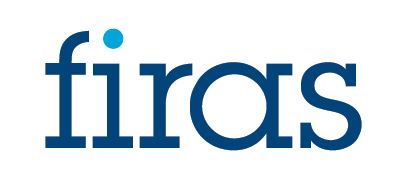FIRAS is a voluntary, third-party certification scheme for installation contractors of both passive and active fire protection systems. It is operated by Warringtonfire, part of Element, and is accredited by UKAS (United Kingdom Accreditation Service) to BS EN ISO/IEC 17065:2012. Established in 1994, FIRAS has been instrumental in improving the construction industry’s installation and maintenance standards of fire protection products and systems. It promotes good practice for installation and maintenance and requires the use of quality assurance methods in procedures, competence, and documentation. FIRAS is described as a quality mark administered by Warringtonfire.
How it is Obtained
FIRAS certification is awarded to a company, not an individual installer. To gain FIRAS certification, contractors must demonstrate current proven technical and practical competence in the fields for which they are certified. The certification process involves a rigorous three-stage assessment:
- Assessment of office management systems. This evaluates the contractor’s administrative and organisational processes.
- Assessment of workmanship on site for all trade disciplines for which certification is sought. This stage requires contractors to demonstrate their ability to perform to the required standards.
- Competence assessment of supervisory and installation employees (Operators). FIRAS Inspectors assess the technical and practical competence of these operators.
Certification is awarded only when an applicant contractor satisfies all these criteria. FIRAS site inspectors have extensive experience in the technical and practical aspects of fire protection. Certification requirements have been developed in conjunction with various UK trade associations.
Once certified, member companies must register all contracts/projects on the FIRAS Maintenance Suite. This system allows FIRAS Inspectors to select contracts/projects randomly for site surveillance audits. Certified companies are also subject to ongoing random inspection of their installation work and an annual audit of their office systems to maintain compliance with the scheme. A register of competent employees is maintained and regularly reviewed to ensure the company retains a skilled workforce.
Upon completion of projects registered as ‘Contract in Hand’ on the FIRAS online database, the company can issue a Certificate of Conformity (Compliance). A project not recorded as a ‘Contract in Hand’ cannot be certified under the FIRAS scheme. If non-conformance is found during an audit, the ‘Contract in Hand’ is placed on hold, preventing the issuance of a certificate until corrective action is taken.
Initial eligibility to apply may include registering with Companies House, trading in fire protection for a minimum of 6 months, having suitable records for at least four contracts/projects, and having two or more employees. Certain company types, such as principal contractors subcontracting works or Local Authorities, may be ineligible.
Who Needs It / If at All
FIRAS certification is voluntary. However, it is widely recognised in the industry and is often a prerequisite for contractors undertaking substantial fire protection work. It is vital for achieving the required fire protection. Using a third-party certified installer ensures that the correct materials are being used and installed by competent Operatives. It assures the client that the contractor is qualified to undertake the project. Clients are advised to request confirmation that a ‘Contract in Hand’ is recorded on the FIRAS Maintenance Suite before work commences.
What it Proves
FIRAS certification is the endorsement of competency in installing products and systems. It provides added assurance that suppliers are independently verified, regularly audited/certified, and competent to undertake the necessary work. It demonstrates that the certified company can achieve and work strictly within the scheme requirements. It assures clients that fire safety installations adhere to strict quality and safety standards and are conducted by competent personnel using the correct materials and methods within their tested and approved scope. A certified company demonstrates its commitment to quality and safety by undergoing rigorous assessments and regular audits. It provides peace of mind to clients that installations are correct to specification and will provide the required level of fire protection.
